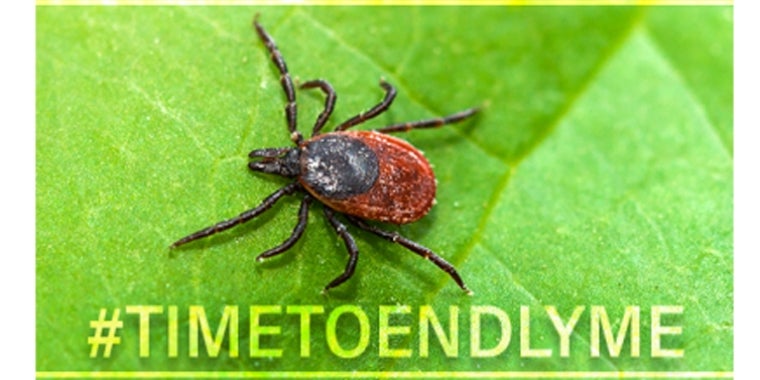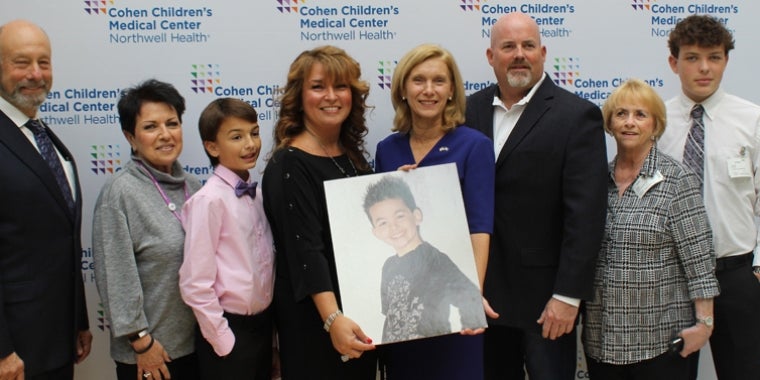
Senator Phillips Announces Legislation To Combat Lyme & Tick Borne Diseases
January 5, 2018

With Lyme disease cases continuing to increase on Long Island and throughout New York, Senator Elaine Phillips today announced her support of a package of legislation designed to reshape and more effectively combat the growing disease.
The package includes measures that would significantly increase reporting of these diseases to bolster critical research and create a working group comprised of various experts to ensure that the state remains aware of important developments in this ever-evolving field of study.
“Long Island families are unfortunately very familiar with the hazards of Lyme disease and other tick-borne illnesses. This is why it is imperative that we advance efforts in Albany to improve research and awareness to ultimately prevent future cases and mitigate the harmful effects of the disease, especially in our children,” said Senator Phillips.
Phillips said one bill would specifically create a pilot program for Lyme and tick-borne disease testing in children.
“Child's symptoms for Lyme disease or other TBDs are not always clear-cut. By giving families more options for early detection and testing, hopefully more kids will be able to make a quick recovery from Lyme disease,” said Senator Phillips.
The package of bills, sponsored by Senator Phillips, aims to tackle the growing issue head-on. Specifically, the bills include:
- A Pilot Program for Lyme and TBD Testing in Children (S. 7169): Creates a pilot program for Lyme and TBD testing in children, through which children with certain diagnoses that have similar symptoms as Lyme and other TBDs could voluntarily be tested for TBDs. Experts have noted that children aged 5-7 have the highest rate of contracting Lyme disease, and by targeting at-risk populations, we can better ensure that those who contract Lyme or other TBDs can be diagnosed and treated early.
- The Creation of a ‘Mental Health Impacts’ Report (S. 7171): Requires the state to conduct an impact study considering how infectious diseases and blood-borne pathogens, including Lyme and TBDs, may have correlations with mental illness in infected individuals. Such an initiative would enable the State to better address any mental health consequences associated with these infections.
- Improve Reporting Requirements of Lyme and TBDs After Death (S. 7168): Requires those responsible for conducting post-mortem examinations to report to the State Department of Health any time they discover that the deceased individual was afflicted with Lyme or any TBD at the time of their death. Such reporting will help improve the accuracy of Lyme and TBDs statistics.
- Lyme and TBDs Working Group (S. 7170): Establishes a Lyme and TBDs working group to review current best practices for the diagnosis, treatment, and prevention of Lyme and TBDs and ensure that the state remains apprised of new developments in the ever-evolving field.
The bills were drafted as a result of recommendations made in a report issued by the Senate Majority Coalition Task Force on Lyme and Tick-Borne Diseases of which Senator Phillips was named a member of the task force last year.
The Task Force has been working since 2013 to engage stakeholders and develop legislation to address Lyme disease. It will build upon past legislative successes, including two new laws passed last year that require the Department of Health to design a Lyme and TBD awareness program, and require the state to create age-appropriate educational materials that would be readily available to schools. Another new law passed this year will help keep kids safer through the use of insect repellent at summer camps.
“Education is key and as elected officials, it is our responsibility to promote public awareness about this debilitating illness in our local communities. As a member of the Task Force, I look forward to working with my colleagues as we improve detection and treatment efforts of tick-borne diseases and provide residents with the knowledge they need to reduce exposure,” said Senator Phillips.
While the Northeast United States continues to be one of the hardest-hit regions for Lyme and other tick-borne diseases, the Senate has been actively working to reverse this trend. In 2017, the Task Force successfully secured a record $400,000 in the state budget for research, education, and prevention efforts.
Share this Article or Press Release
Newsroom
Go to Newsroom


